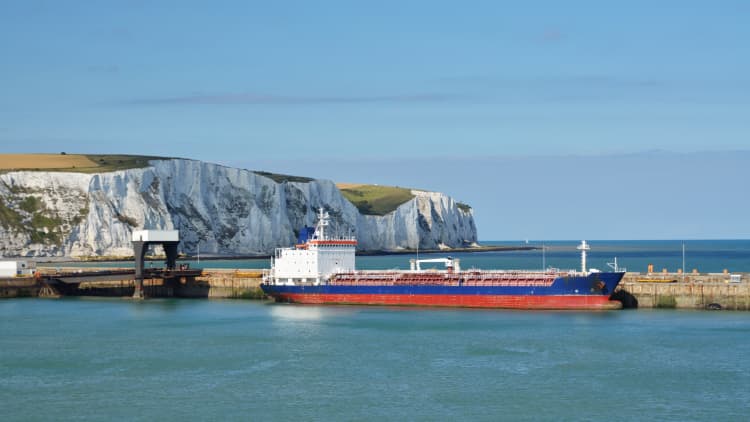Expectations are high going into next week's European summit after the EU's Brexit negotiator said a deal is "within reach." But, the message from Brussels is still that "there is no breakthrough yet."
Brexit negotiators are working "day and night" to carve out a deal that will allow them to move forward with the process. In the best-case scenario, technical teams will manage to make "decisive progress" at the start of next week, paving the way for a successful European summit on Wednesday.
European leaders gathering in Brussels Wednesday will hear from Prime Minister Theresa May and decide whether there is room to complete the so-called Withdrawal Agreement — the plan outlining how the U.K. will leave the EU in March of next year. If that's the case, the EU will announce next week a new date for an emergency summit, sometime in mid-November.
"What I can say from our side, today, Thursday the 21th of October is that we are not there yet, there is no breakthrough yet. Intensive technical negotiations are continuing to see if we can reach the decisive progress we were referring to yesterday," Margaritis Schinas, a spokesperson for the European Commission, told reporters in Brussels on Thursday.
He added: "We are working hard to reach a deal."
The main stumbling block remains the border between Northern Ireland and the Republic of Ireland.
"Northern Ireland is still the big issue," an EU official, who did not want to be named due to the sensitivity of the talks, told CNBC over the phone.
"We don't have to agree now on the full mechanism, we can draw a solution in the coming years, but we need to agree now on the backstop," the official said.

There are different options on the table to fix the border issue, but the EU's negotiator Michel Barnier suggested Wednesday that to avoid a physical border between both sides of the island, Northern Ireland will still be part of the EU's single market (a region where goods, people and services move freely).
But this plan might raise problems for May at home. The unionist party in Northern Ireland, the Democratic Unionist Party (the DUP), who back May in Parliament and give her the necessary majority she needs to approve any Brexit deal, are against the idea of putting any sort of barrier that divides Northern Ireland from the rest of the U.K.
"We expect the withdrawal agreement to be completed by November, but the risk of a 'no deal' will remain high owing to the possibility that it does not survive the ratification process," Danielle Haralambous, a U.K. analyst at the Economist Intelligence Unit, told CNBC via email.
Once negotiators conclude the Withdrawal Agreement and EU leaders are happy with it — which would take place in mid-November — this deal needs to be approved by the European and U.K. Parliaments, the so-called ratification process.
"In the U.K. parliament, pro-Brexit members of the government are unhappy with the direction in which Mrs May is taking Brexit, while Labour MPs (members of Parliament) have declared their intention to vote against the deal," Haralambous noted.
"There is a significant risk that MPs on both sides of the Brexit divide vote against the withdrawal agreement and seek a general election," she added.
Members of the DUP have threatened to vote against the government's budget plan for next year, if the U.K. prime minister does not respect the DUP's "red lines" in the Brexit process.
This could potentially bring down the government as it would signal that the deal between the Conservatives and the DUP would no longer be in place.
If negotiators are successful in finding a solution for the Irish issue next week, sterling could move higher. The currency has been volatile to the ongoing Brexit noise, having risen 0.5 percent to $1.32 against the dollar on Barnier's remarks this week.



